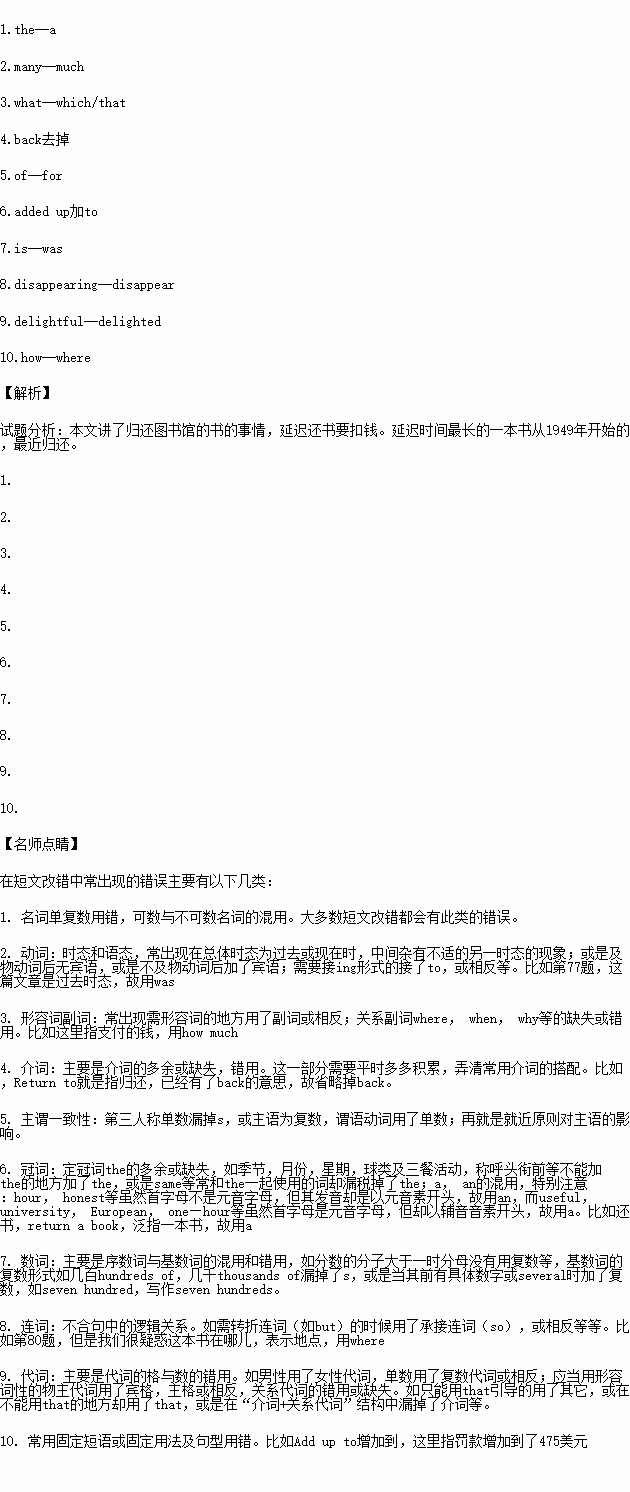题目内容
短文改错
假定英语课上老师要求同桌之间交换修改作文,请你修改你同桌写的以下作文。文中共有10处语言错误,每句中最多有两处。每处错误仅涉及一个单词的增加、删除或修改。
增加:在缺词处加一个漏字符号(/\),并在其下面写出该加的词。
删除:把多余的词用斜线(\)划掉。
修改:在错的词下划一横线,并在该词下面写出修改后的词。
注意:1.每处错误及其修改均仅限一词;
2.只允许修改10处,多者(从第十一处起)不计分。
You may have returned the book late to the library before. It is normal to pay a small fine, but how many would you have to pay if the book was returned 65 years late ?
This is a problem what John R. Rogers High School in Washington, US had to deal with recently. A copy of Gone With the Wind that was 65 years overdue was finally returned back to its library. However, the school said on December 2nd that it would not charge late fees of the book, which would have added up about $475 (2941 yuan).
The long-overdue book is checked out of the library of the high school in 1949, and seemed to disappearing until it was found in Maine, US, by Wayne Hachey. He found the book in his father’s basement and then offered to send it back to the school. “We are delightful to have the book back, but we wonder how it has been,” Lori Wyborney, principal of the school, said.

